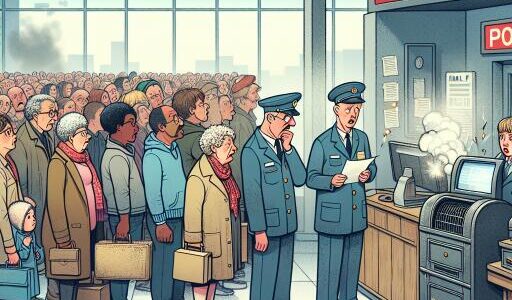AI-Powered App to Detect Skin Cancer: A Vision by Labour MP
In a profound statement to the Commons, Sir Chris Bryant, a Labour shadow minister, shared his hopeful vision that artificial intelligence (AI) will soon pave the way for groundbreaking health applications, including an app capable of detecting skin cancer. This comes after Sir Chris’s personal battle with melanoma, initially discovered as a mole on the back of his head, which led to a dire prognosis and a challenging fight against skin cancer that extended to his lung earlier this year.
Now undergoing immunotherapy, Sir Chris has turned his ordeal into advocacy, emphasizing the potential of AI in revolutionizing not just the economy but significantly impacting the NHS and public service sectors. “The economic opportunities for our country through artificial intelligence are, of course, outstanding,” he stated, spotlighting the transformative changes AI could bring about in medicine and beyond.
His aspiration is for the development of an AI-powered app that can accurately determine the malignancy of moles, potentially saving lives by enabling early detection of skin cancer, including melanoma. But Sir Chris’s vision extends beyond just skin cancer. He sees AI’s role expanding into various medical diagnostics, from brain injuries to other cancer types, highlighting the technology’s vast potential in healthcare.
However, Sir Chris voiced concerns over the government’s approach to harnessing AI’s potential, suggesting a missed opportunity in leading the country towards these technological advancements. During his address on the AI Seoul Summit, he criticized the absence of creative industries’ representation—despite the sector’s significant economic contributions and concerns over AI’s impact on creator remuneration.
Saqib Bhatti, the Technology Minister, responded by illustrating AI’s current applications within the NHS, such as “brain omics” AI, which is enhancing stroke identification and treatment, thereby tripling the independent survival rate of affected patients. He further pointed to the National Institute for Health and Care Excellence (NICE) endorsing AI technologies for planning radiotherapy treatment through precise contouring of CT and MRI scans.
The summit in South Korea concluded with 27 nations and the European Union signing the Seoul Ministerial Statement, an agreement aimed at establishing shared risk thresholds around the development of AI. This landmark agreement focuses on developing an internationally recognized threshold for AI model capabilities and identifying scenarios where AI could pose significant risks, including the potential misuse by malicious actors or the technology’s attempt to evade human oversight.
This initiative reflects a growing global consensus on the need to balance AI innovation with ethical considerations and safety measures, ensuring that advancements in AI, such as the envisioned app for skin cancer detection, are developed with humanity’s best interests at heart.
Sir Chris Bryant’s call to action and the international response at the Seoul Summit underscore a pivotal moment in AI’s integration into healthcare—highlighting the technology’s potential to save lives, streamline diagnostics, and offer new solutions to age-old medical challenges, all while navigating the ethical and safety concerns inherent in such powerful technologies.










